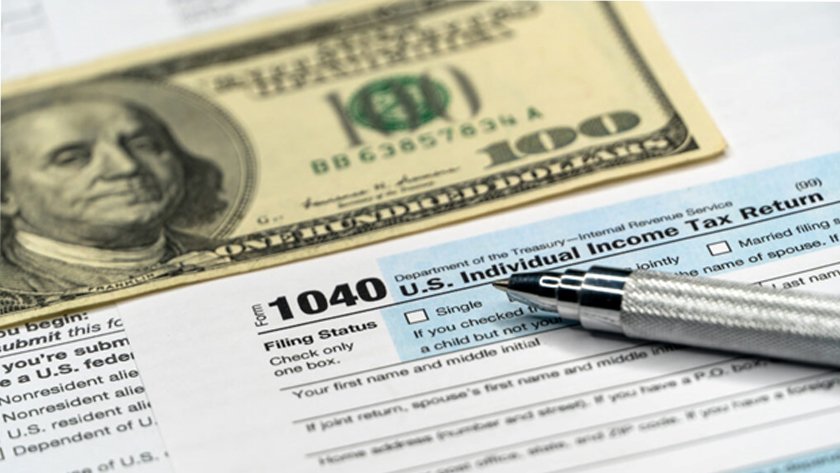For businesses, tax write-offs are essential to staying in the black. It’s not enough to just earn a profit; if you want to stay profitable, you must make sure you’re taking advantage of the most lucrative tax write-offs available. Fortunately, there are number of new tax write-offs that businesses can use to save money on their taxes.
In this post, Barron Income Tax will explain the basics of tax write-offs and discuss some of the financial benefits. We’ll also look at some of the most popular tax write-offs, so you can make sure you’re taking advantage of them. With our advice, san diego corporate tax preparers, you’ll be able to keep your corporate wallet full and stay in the black.
Table of Contents
Tax write-offs are an effective way for companies to save money and increase their cash flow. To make the most of these savings, it is important to understand what tax write-offs are, the benefits and how to calculate them, as well as how to take advantage of common tax write-offs.
Defining Tax Write-Offs
Tax write-offs refer to expenses that companies can deduct from their taxable income. The Internal Revenue Service (IRS) allows businesses to take advantage of these deductions in order to reduce their taxable income and the amount of taxes they owe.
Examples of tax write-offs include business travel costs, start-up expenses, equipment and supplies, home office expenses, education and training, professional fees, and business losses.
Benefits of Taking Tax Write-Offs
Save Money
Tax write-offs enable companies to lower their overall tax burden by reducing their taxable income. This can be beneficial for companies that are expecting a significant amount in taxes for a given year or simply want to keep more money in their pocket.
More Cash Flow
Tax write-offs also help to free up cash flow for businesses by providing them with additional funds that would otherwise be spent on taxes. This can provide businesses with the resources needed to invest in growth activities or even pay down debt.
How to Calculate Tax Write-Offs
Estimate Your Write-Offs

The first step in calculating your tax write-offs is to estimate how much in total you can deduct from your taxable income. To do this, compile a list of any expenses or losses you have incurred during the year that qualify as tax write-offs and put together a rough estimate of what each item may cost when accounting for tax deductions.
Contact a Professional
It is also recommended that businesses contact a professional tax advisor to get an accurate estimate of what they can deduct from their taxable income as well as any restrictions that may apply when it comes to taking advantage of certain tax write-offs.
Common Tax Write-Offs for Companies
Start-Up Costs
Start-up costs such as legal fees, advertising fees, and other similar expenses can be deducted from a company’s taxable income if they are incurred after the start date of the business and are deemed necessary for its successful operations.
Home Office Expenses
Home office expenses such as rent or mortgage payments as well as utilities used exclusively for business purposes can also be written off from a company’s taxable income each year if the home office qualifies under IRS regulations.
Travel Expenses
Business travel costs such as airfare, lodging, meals, mileage reimbursements, and other related expenses can also be written off from a company’s taxable income as long as they are directly related to business activity and kept within reasonable limits set by the IRS.
Equipment and Supplies
Businesses can also deduct the cost of equipment and supplies purchased for use in the business from their taxable income each year if it is considered necessary for operations or contributes directly towards profit generation.
Education and Training
Any fees associated with education and training related to the business’ core operations can also be deducted from taxable income each year if they are deemed necessary for success or growth purposes such as employee development programs or attending industry conferences or trade shows.
Professional Fees
Legal and accounting fees associated with running a business such as consulting fees or auditing services can also be deducted from a company’s taxable income each year if they remain within IRS limits set forth in the U.S Code section 162(3).
Writing off Business Losses

Deducting Losses
Businesses can also deduct their losses such as inventory shrinkage, bad debt expense, or unpaid invoices from their taxable income each year if it can be shown that these losses were not due to fraud or negligence on behalf of management and were necessary for business operations.
Understanding Tax Rules
It is important for companies understand all applicable tax rules associated with writing off business losses before doing so in order to ensure compliance with U .S . IRS regulations and avoid any potential penalties down the road.
Keeping Track of Your Tax Write -Offs
Document Everything
The best way to ensure that all applicable tax write -offs are taken advantage of is by keeping accurate records of all transactions and making sure they are documented properly throughout the fiscal year. Invoices, receipts, cancelled checks, credit card statements, travel logs, etc should all be kept on file just in case they need to be presented at any time during an audit by the IRS.
Using Accounting Software
Additionally, businesses should consider using accounting software such as QuickBooks or Xero in order to easily track their financial activities throughout the entire fiscal year which will make it easier when it comes time to calculate their tax write -offs at the end of it.
By understanding what tax write -offs are, taking advantage of common write -off opportunities available for businesses, calculating their deductions accurately, and documenting everything appropriately, companies are able to effectively save money by reducing their net taxable income each year thus ensuring that their corporate wallet remains full.
Conclusion:
Tax write-offs are an important tool for businesses when it comes to saving money and managing their corporate finances. Barron Income Tax, corporation tax preparation, helps you understand the basics of tax write-offs, exploring the available write-offs, and keeping accurate records of expenses and losses, businesses can take advantage of these write-offs to ensure their corporate wallet remains full. With the right strategies and knowledge, businesses can ensure they continue to stay in the black and make the most of their available tax write-offs.
At Barron Income tax services, we specialize in tailoring the right service for our clients. We understand every customer has Read more
When you first start filing your tax returns, one of the many questions that come into mind is; should I Read more
With rules changing on sudden notice and many businesses having to enforce limits & restrictions on their premises. It is Read more
If you are the one who engages in business outside his country or deals with overseas legal documents, you need a Read more
After months of negotiations the $1,400 stimulus check has been approved and ready to go! In this article, we will Read more
Are you tired of struggling with bookkeeping mistakes that can jeopardize your business? Look no further! Barron Income Tax has Read more
Tax season frequently emerges as one of the most anxiety-inducing periods in the lives of taxpayers. Meeting the stringent filing Read more
Are you a small business proprietor dreading the impending tax season? The prospect of delving into heaps of paperwork and Read more









Leave a Reply